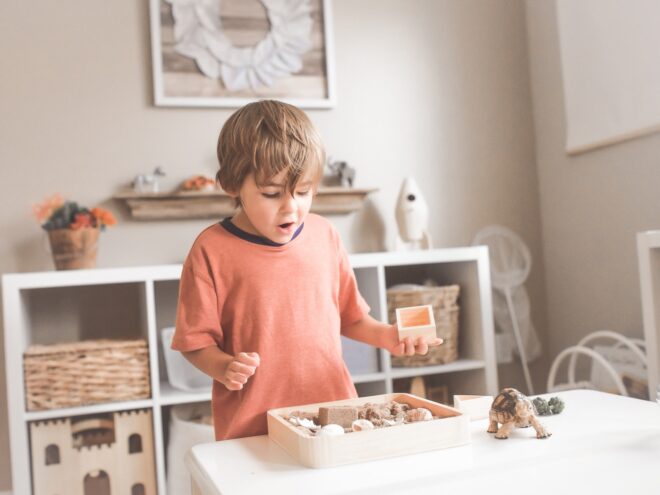Family • 03/04/2022
Is Santa Real? What to Tell Your Kids

Revivalist is a reader-supported endeavor and our posts may contain affiliate links. When you buy through links on our site, we may earn an affiliate commission.
For some kids, Santa Claus is the most magical part of Christmas. However, many parents worry about how their children will react when they discover he doesn’t really come down their chimney every Christmas.
Modern parents are stuck with a dilemma because Santa is a society-wide phenomenon. Some parents think it’s cruel not to make Saint Nicholas part of Christmas. Others think he’s an inexcusable lie that will damage your children’s trust in you.
Thankfully, the Santa question isn’t as tricky as it seems. Here are five healthy ways you can help your kids navigate Christmas traditions for long-lasting joy.
1. Pretend Together
Little kids have vivid imaginations, and playing pretend can be just as fun for them as believing something is real. For example, many kids imagine that fairies live in their backyard or they have an imaginary best friend. Even though they know these things aren’t real, they still have a great time playing with the idea.
One way to handle the Kris Kringle issue is to enjoy him with your kids like you would a fairytale. You can include him in your holiday celebrations and encourage your kids to write him letters without telling them that he’s real. Most children will enjoy the magic of this holiday tradition even if they know it’s just a game. Pretending together will also make the transition to adult Christmases easier for kids.
2. Teach Them History
The modern version of Santa Claus is based on an old story about a generous man named Saint Nicholas who lived in the 4th century. In the story, Saint Nicholas sent three bags of gold down one family’s chimney and into their stockings. Because of his gift, the family’s three daughters were able to get married and secure their futures.
Another healthy way to teach your kids about Santa is to talk about him as a historical figure. Many kids love hearing about myths and legends like Robin Hood and King Arthur. You can add Santa to this list and bring magic to the Christmas season by teaching them all about the man behind the myth. Many cultures celebrate Santa differently, so you can also work cultural lessons into these discussions.
3. Practice Critical Thought
Many parents object to Santa because they don’t want their kids to get mixed messages about whether their parents are trustworthy. When they find out the truth, many kids are hurt, angry, and sad. This concern especially affects religious families, who may be teaching their kids about their religious faith at the same time as Santa Claus.
As children develop, they’ll learn to ask good questions and consider evidence to decide what they believe in. Santa Claus is actually a good opportunity for parents to start teaching their kids these critical thinking skills. Instead of breaking trust, Santa can be a tool that equips your kids to know what is trustworthy.
4. Leave It to Them
Many children discover that Santa isn’t real on their own. As kids get older, their brains mature, and they become more grounded in the real world. At around eight years old, most kids have developed a sense of self and have their own opinions about life, including Santa Claus.
If Santa Claus is important to you, enjoy him while your kids are young and then let them naturally grow out of the idea. Many kids will realize the truth on their own as they mature. Although this method works well for some families, you do run the risk of your child hearing the truth from someone else.
5. Respect Others Together
Regardless of how your family handles Santa, many families you know will probably make a different choice. It’s important to help your kids learn to respect others’ decisions even if they don’t agree. Talk to your kids about how to respond if their friends or teachers bring up Saint Nick.
Kids who believe in Santa may be pressured to defend their beliefs or even feel bullied by those who disagree with them. On the other hand, kids who don’t believe in Santa shouldn’t go around telling other children he’s not real – that’s not kind or respectful to others. However you handle Santa, he can be a powerful tool for teaching your children good interpersonal skills.
Focus on Relationships
You know your kids best, so you’re the only one who can decide what to tell your kids about Santa. Rely on your own personal childhood experiences, and incorporate Santa into your holiday traditions in the way that’s best for your family.
However you choose to address the Santa question, Christmas is a wonderful opportunity to build relationships with your kids and teach them about kindness, generosity, and magic. Remember, your decision about Santa won’t make or break your children’s childhood.
Subscribe to Our Weekly Newsletter
We would love to connect deeper with you!


